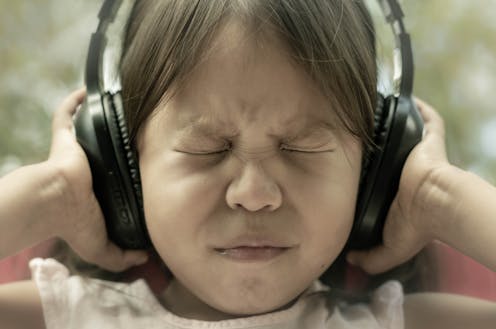Noise can make it hard to concentrate, especially for people who are extra sensitive to it. Neurodivergent people (such as those who are autistic or have attention-deficit hyperactivity disorder – ADHD) can experience different sensory sensitivities. Their nervous system may process information differently when they are exposed to sensory experiences such as bright lights, loud noise, strong smells or busy environments.
Decreased sound tolerance is estimated to affect up to 70% of autistic people and is described in three ways: hyperacusis (perceiving everyday sounds as loud or painful), misophonia (an aversion to specific sounds) and phonophobia (fear of a specific sound). As a sensory feature of autism, decreased sound tolerance may have the largest overall impact on quality of life . Many autistic or ADHD people describe how noise stops or limits their day-to-day activities such as attending classes , work meetings, socialising or even health care .

In the overall population, we know too much noise can lead to poorer physical and psychological health . Unwanted or unexpected noise can cause irritation, anxiety, anger and restlessness . Noise-cancelling headphones, earplugs and earmuffs are often recommended or marketed to help manage noise sensitivities.
But do they actually make a difference? Different devices work in different ways. Most earplugs and earmuffs simply act as a barrier to block or muffle sound. Noise-cancelling headphones (and now some in-ear devices) can.
















